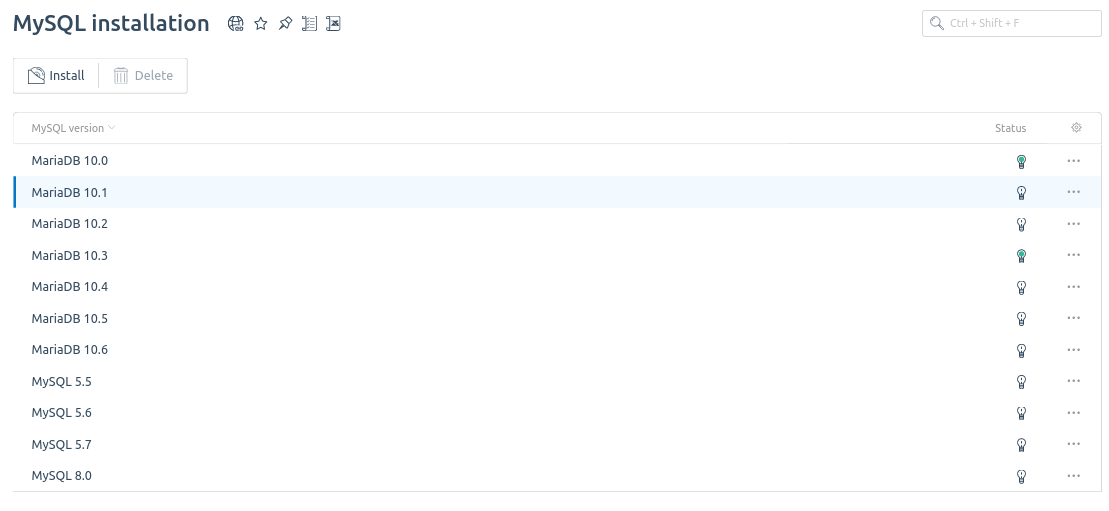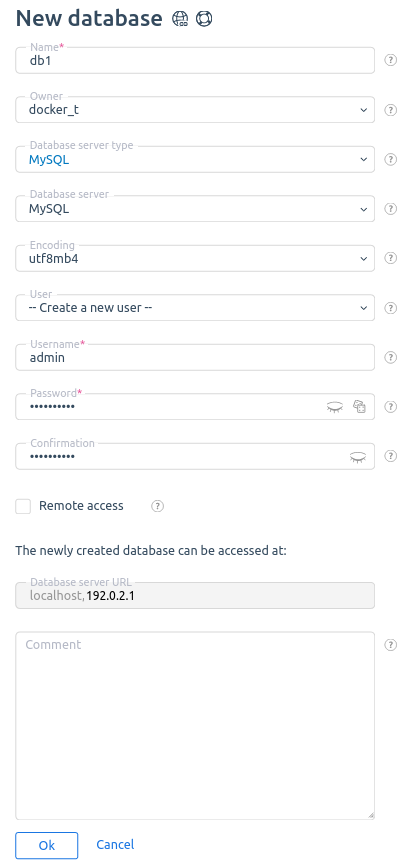Alternative MySQL versions
Introduction
MySQL is a free database management system. ISPmanager users can install several alternative MySQL versions on a single server beside the default version. It's a new feature based on Docker container virtualization.
System requirements
Supported operating systems: CentOS 7, AlmaLinux 8.
OpenVZ and LXC virtualizations are not supported. Docker requires at least 2 GB of RAM for correct operation.
Installing an alternative MySQL server
To be able to set up alternative versions in ISPmanager Business, you should have at least one cluster node with a MySQL role. Navigate to Cluster settings → MySQL installation.

In the form that will open select one or several MySQL versions and click Install. The selected version will be installed on all the existing cluster nodes with the MySQL role, and those you will connect in the future.
The following versions are currently supported:
- MySQL 5.5;
- MySQL 5.6;
- MySQL 5.7;
- MySQL 8.0;
- MariaDB 10.0;
- MariaDB 10.1;
- MariaDB 10.2;
- MariaDB 10.3;
- MariaDB 10.4;
- MariaDB 10.5;
- MariaDB 10.6;
- MariaDB 10.7;
- MariaDB 10.8;
- MariaDB 10.9;
- MariaDB 10.10;
- Percona Server for MySQL 5.6;
- Percona Server for MySQL 5.7;
- Percona Server for MySQL 8.0.
Creating a database
After your server is successfully installed and configured, it will be added to the list of servers.
Navigate to Tools → Databases → Create a database and select the newly created server in the database creation form.

Technology
All alternative MySQL-servers are deployed within containers (isolated environments). The data from each container are saved in the separate directory /var/lib/server_name. Docker is responsible for container creation and management. MySQL versions are kept in its repositories.
ALL MySQL versions will be used for the setup of the local MySQL-server. Do not delete those versions.
Container setup procedure:
- A new directory is created for the container(/var/lib/server_name)
- The selected MySQL version is uploaded from the repository
- A free port is selected for the container ( the first free port starting from 3310)
- The server is configured, and the root password is set up.
Updating containers
Every container is created based on a certain image from the docker repository which is regularly updated. The control panel supports only MySQL-containers that's why the update process can be started on the database server management form. To delay the process check the box Delayed start and set the time. All the images will be downloaded from the docker repositories when the system checks updates for them. Their versions will be compared with the version of container images. Containers with outdated versions will be updated.